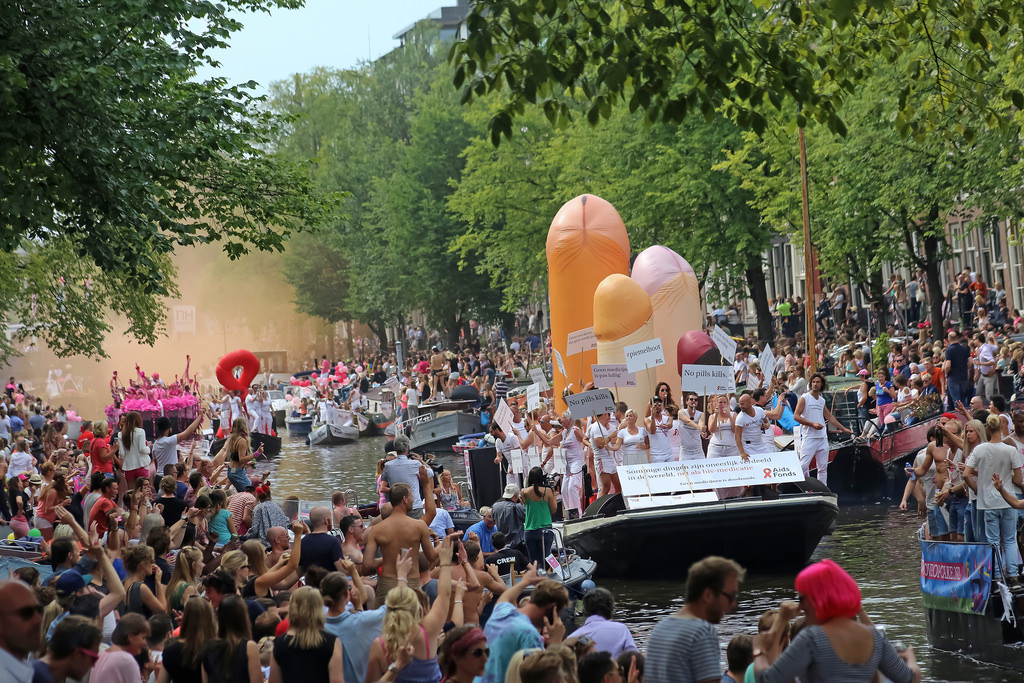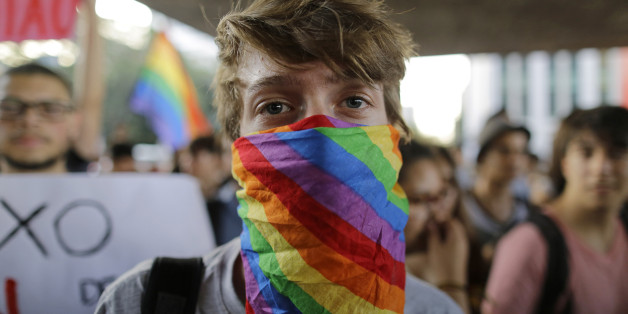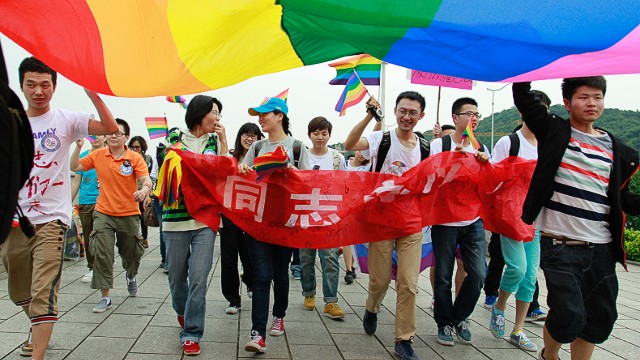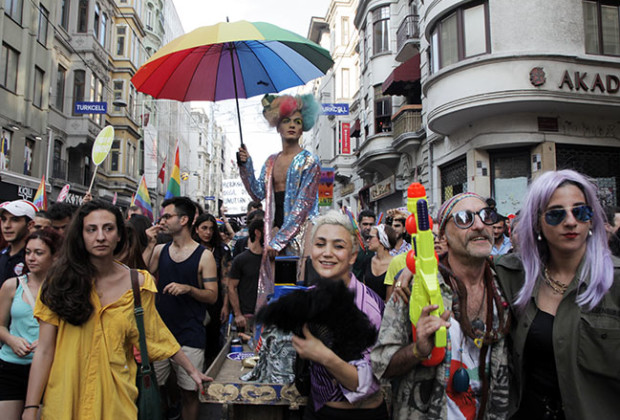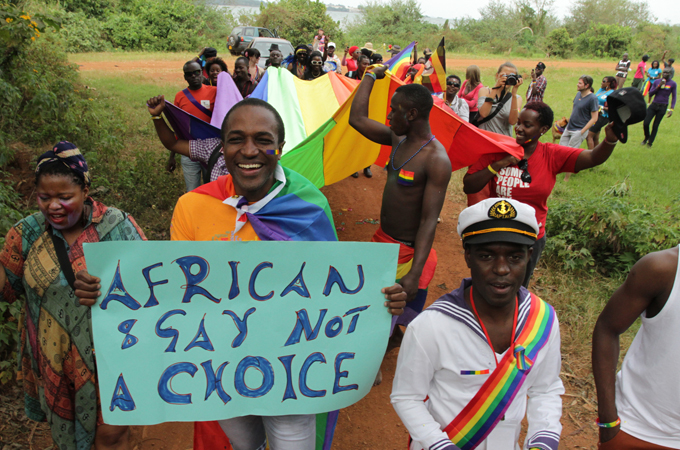The Standards Of Life For LGBTI People Around The World Will Shock You
By Oscar Kaspi-Crutchett
In today’s Australia, life for Gay, Lesbian and Transgender citizens is relatively safe and relatively comfortable. The LGBT community is protected by reasonably watertight anti-discrimination laws and the LGBT community continues to flourish.
Although homophobia and transphobia do often show their ugly faces in Australia, especially in the schoolyard, the years of discrimination are slowly being unraveled as the country moves to becoming more and more accepting. Marriage Equality is expected to be achieved in the near future as public consensus grows more and more supportive of the LGBT minority and its rights. As a young Australian myself, I think all of us here in Australia, LGBT or not, owe a duty to our morals and to our brothers and sisters overseas. We have a duty to be informed and knowledgeable about what is indeed happening and to use that knowledge to stand up for the many LGBT people who are strangled out of having their own voice.
Obviously, in many regards, Australia has a long way to go in its treatment of LGBT citizens. LGBT people are still under attack in numerous ways, through bullying and through public calamities like the funding cuts to the Safe Schools Program. However, life is very different for LGBT people in other parts of the world. For better or for worse, the quality of life for those who identify with diverse sexuality and gender greatly varies across borders. With the intention of raising awareness about life for LGBT citizens in different parts of the world and in different cultures, different conditions will be explored and discussed, further delving into LGBT life for those in other parts of the world, and what it’s the social and legal realities are for the the LGBT communities in ten different countries on six different continents.
In a way, LGBT Australians are indeed lucky for their quality of life. This isn’t to say our problems and continuing discrimination isn’t an issue, of course it is, but it must be said that there are places in the world which continue to commit heinous and shameful violations against the community. From the right to expression, assembly and speech – to the right to life itself, sexual and gender minorities have their human rights assaulted and robbed to extents which are difficult for us to believe here in Australia.
There are a handful of countries ahead of us on the road to LGBT acceptance and support, but there are many dozens far behind. We should aim to educate ourselves on the conditions for LGBT people in those countries, so we can be not only informed, but real allies in their continued struggle to live their lives in peace and dignity.
1. The Netherlands
The Netherlands is an example of a country very supportive and committed to LGBT citizens and their rights. In 2001, The Netherlands was the first country in the world to legalise same sex marriage. Over the past few decades, life for dutch LGBT people has been of a high and improving quality. Amsterdam, the capital of the Netherlands, has often been cited as the most gay-friendly city in the world. The Netherlands hosts one of the most culturally liberal societies in Europe and beyond, over 90% of those in the country have stated being supportive of same sex marriage.
Life for Gay and Lesbians is very safe in the Netherlands, however pockets of conservative Christian and Muslim areas in the country are still skeptical (and sometimes even hostile) to the widespread acceptance of LGBT people and lifestyle. Unfortunately, life for transgender citizens is still behind that of the mainstream Gay and Lesbian community. Although transgender citizens are allowed to change their legal gender, discrimination protections on the grounds of gender identity not yet been enacted nationwide.
The Netherlands has a history of support for LGBT citizens, in 1987 it was the first nation in the world to erect a national monument in commemoration of the gay lives lost in the Second World War. Public displays of tolerance and solidarity are frequent, but there are still some circulating sentiments of homophobia and transphobia in certain areas. However, the Netherlands should be commended for it’s long standing support of LGBT which people which has allowed the community to flourish to this day. In comparison to Australia, the Netherlands is significantly more advanced on the road to LGBT equality.
2. The United States
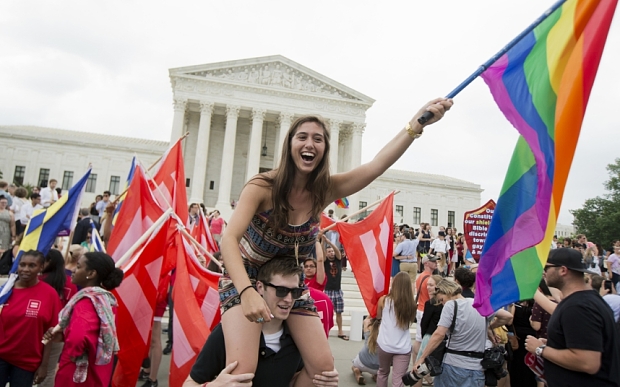
The United States, being such a large nation, has contrasting attitudes to LGBT rights state by state, therefore making it difficult make bold broad brush statements about the nation as a whole. Generally, discrimination against LGBT citizens is slowly coming to close. With Marriage Equality put into effect last year, life is becoming easier for many LGBT people in the United States. However, the laws emerging in North Carolina and other more conservative areas in the country have been regarded as a step in the wrong direction. The political right in the United States has never been afraid to launch anti-gay and anti-transgender rhetoric in order to achieve its intentions, but the historic implementation of same-sex marriage was a severe blow to them.
In places like New York and San Francisco, LGBT lifestyles and culture is treated much more warmly than in the more conservative-rural regions. The United States has produced countless gay icons in the 20th and 21st centuries, LGBT hate crimes are relatively rare.
The Orlando Massacre which took place on June Twelfth is a notable exception to the overall passable quality of life for LGBT people in the USA. Underlying attitudes of extreme queer-phobia do exist in the USA, the Orlando Shooting was a sobering reminder of this. The USA, much like Australia, continues to slowly push forward supportive legislation but faces trouble addressing simmering attitudes of homophobia and transphobia which exist in large proportion across the country.
In 2013, over 90% of LGBT Americans stated feeling that life for them has became easier for them in the past ten years, however 42% feel they are living in an unwelcoming environment. Queer rights has come a long way in the USA, but it still has a long way to go.
3. Israel
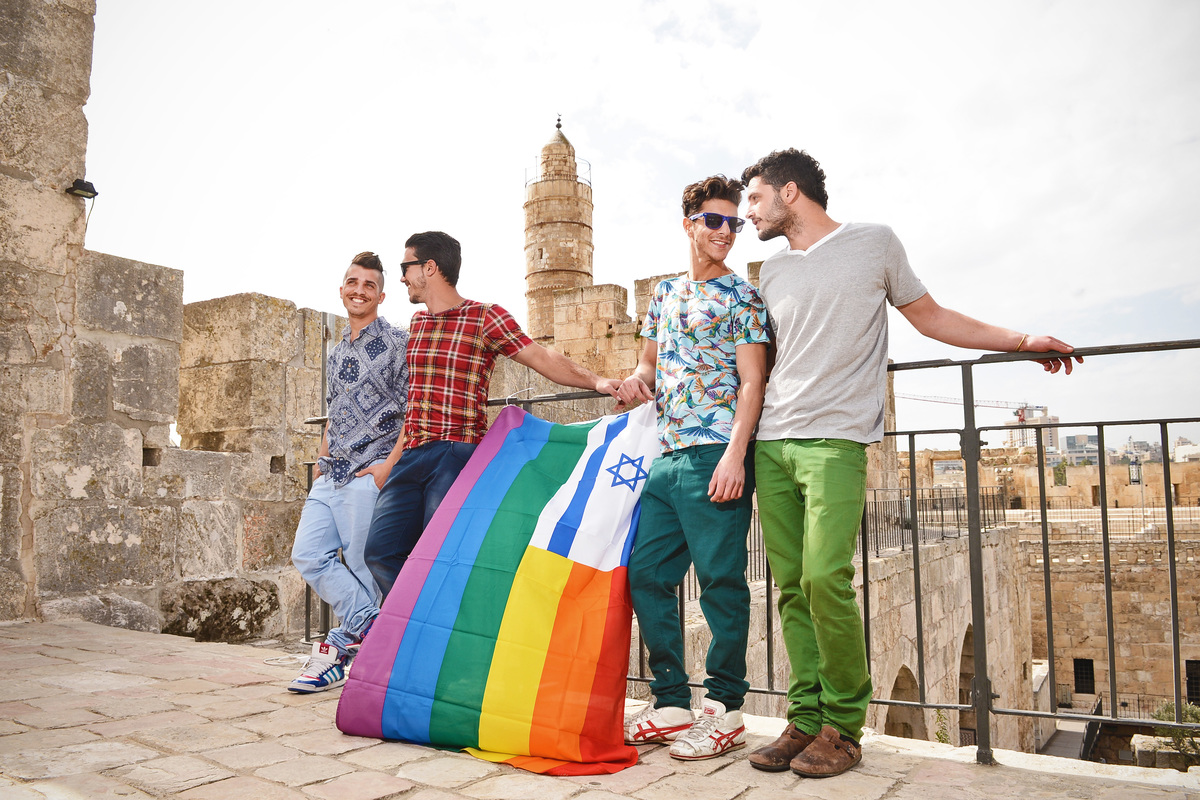
Sitting in a region surrounded by nations openly hostile to all forms of LGBT life, many have regarded Israel as a safe haven for LGBT middle-easterners, pointing to its illustrious pride parades and nightclubs. Despite being one of the most advanced countries in the middle east (and in Asia) for LGBT citizens, Israel faces increasingly severe problems of homophobia and transphobia.
Recent polls have found most Israelis to be supportive of same-sex marriage, and Tel-Aviv has been frequently cited as one of the most ‘gay-friendly’ cities in the world. Same-sex marriage has not yet been enacted in Israel, and it is unsure if it will be in the near future. It is important to note that queer phobia is on the rise in the country, many believe that the nation is going backwards rather than forwards in it’s treatment of LGBT citizens. The growing ultra-orthodox community is strongly opposed to LGBT public life and lifestyle, acts of extreme homophobia have taken place at the hands of ultra-orthodox extremists. Sporadic incidents such as this one have been pointed to by Israeli LGBT activists, who report that Israel is not always the safe haven many outsiders think it to be.
Tel-Aviv is socially, culturally and politically liberal, because of this, it is much easier to be gay in Tel-aviv than it is to be gay in Jerusalem. Outside the city however, homophobia is widespread. Conservative religious communities in rural areas as well as more traditional cities continue to house prominent homophobic and transphobic attitudes. Despite these growing issues, the Israeli population still stands reluctantly supportive of it’s LGBT community. Since 1992 anti-discrimination protections have been in place, and gay Israelis may serve in the army. Generally, it’s fair to say that attitudes to LGBT people greatly vary across the country’s urban-rural and secular-religious lines, with Tel-Aviv hosting a magnificent and flourishing gay subculture, but with the conservative areas rejecting it entirely.
4. Brazil
Brazil sits in a purgatorial state regarding LGBT rights. Much like Israel, the secular and urbanised areas host massive pride marches and festivals, with a diverse range of citizens all participating. Millions have attended parades such as these and Rio de Janeiro has become well known for its gay-friendly atmosphere. The concentrated and middle-class urban areas of Brazil are widely supportive of LGBT citizens, same-sex marriage has existed since 2013. But it isn’t always guaranteed safety for those in Brazil who Identify with a diverse sexuality or gender. Anti-Transgender violence is a severe problem, there is nearly one killing an LGBT Brazilian every day – and transgender people are the victims in almost half of these cases.
However, as a nation, Brazil proudly displays shades of the LGBT spectrum, but in its underbelly also displays heinous acts of violence against LGBT people. The political power of the Evangelical Christian community has grown in recent times, leading to the implementation of anti-discrimination laws being stalled, postponed and cancelled altogether.
The situation for LGBT people in Brazil is, like the United States, difficult to describe in one broad statement. Generally it is a safe country for LGBT people, especially in the more progressive areas of the country, but violent acts against LGBT citizens is disturbingly common, and political power is hesitant to address this.
5. China
Life for LGBT people in China is made difficult by multiple social and legal challenges. Despite being the most populated and increasingly one of the most influential countries in the world, the topic of LGBT rights in China is seldom discussed. Same-sex relations and activities were decriminalised in 1997 and transgender people are allowed to reassign their gender, however same sex marriage is denied, adoption rights are denied and there is no anti-discrimination provisions for LGBT minorities in the country.
In Macau and Hong Kong, the situation is slightly better, but mainland China still holds a population which is largely conservative on the grounds of homosexuality and transgender rights. It is very important to note that in the past two decades conditions for LGBT people in China have improved vastly. With the decriminalisation in 1997 and the removal of homosexuality as a listed mental illness, there is no doubt that China’s legal framework has come far. However, many cite larger problems in the family unit in regards to non-heterosexual and non-cisgendered individuals. Problems more difficult to tackle.
According to a 2013 survey, less than a quarter of Chinese considered themselves supportive of accepting homosexuality. A number of clinics in China offer conversion therapies (including shock treatments). The issue of conversion clinics was addressed to a Beijing court but a delay in the ruling means that, for now, conversion clinics may continue to operate as they please.
Outward and violent acts of queer-phobia are relatively uncommon in China, but a reluctant and conservative population makes it difficult to expand rights and makes LGBT life difficult for many in China.
6. Russia
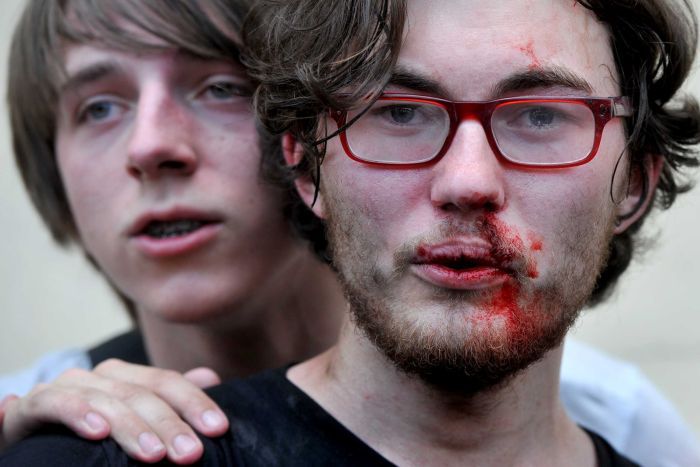
Life for LGBT Russians is precarious, and in recent years has become more and more uncertain and endangered. The expanding influence of the Orthodox Church has seen advancements in LGBT rights be stalled and even reversed. Homosexuality was decriminalised in 1993, but for LGBT people in Russia, life is filled with legal and social challenges. There are no protections for LGBT people against discrimination, in fact, the majority of Russians have been shown to be against the acceptance of homosexuality. Widespread social conservatism in Russia has allowed numerous anti-LGBT laws to be passed and implemented. Russia’s President, Vladimir Putin, has often compared homosexuality to pedophilia on multiple occasions. LGBT activists and journalists have reported many forms of persecution and violence against them and their community.
Russian local governments have a long standing (and continuing) history of rejecting Pride Festivals from taking place. In recent years, Russia has drawn much negative attention to itself for it’s treatment of LGBT people, many citing it as the worst violations of human rights in the country sine the soviet era. The implementation of so called ‘child protection’ laws have led to all forms of Gay and Lesbian life being banned to be shown or even discussed to minors. The law has effectively made it a crime to tell young people that ‘it is okay to be gay.’ Activists opposing the law have been arrested, and since the law was enacted there has been a surge of queer-phobic violence, propaganda and hate crimes across Russia.
To be LGBT in Russia is not yet illegal, but any expressions of LGBT culture and lifestyle have been effectively criminalised and suppressed, leading to Russia being an unsafe and dangerous place for LGBT identifying citizens.
7. Turkey
Homosexuality has been decriminalised in Turkey for over one hundred years, and has always been a legal act in modern Turkey (founded in 1923). In comparison to other nations in the Islamic world, Turkey is much safer for LGBT people. But a high degree of expanding social conservatism still endangers countless same-sex attracted and transgender people in Turkey.
Large pride parades are held in Istanbul, Ankara and other locations. Thousands of activists and allies have participated in these. Even though decriminalisation exists, that is about as far as it goes for LGBT people in Turkey. Many report how harassment and even physical violence is a regular occurrence experienced by sexual and gender minorities, at the hands of co-workers, friends, family and even the Turkish Police. No anti-discrimination laws are in place in Turkey for LGBT people, and despite gender reassignment being legal since 1988, so called ‘honour killings’ of gay and transgender individuals has been known to happen in the past.
Human rights organisations report on the tsunami of instances of queer-phobic acts of robbery, threatening, beatings, sexual assault and murders which take place in Turkey. They also report that the reaction by the Turkish police has been inadequate, if not, totally nonexistent.
In fact, in most cases of hate murders against homosexuals, Turkish courts rule a case of ‘high provocation’ and greatly lower the sentence of the offender.
A lack of anti-discrimination measures means that LGBT Turks can be fired from their jobs because of their sexuality or gender identity, without any legal protections. These legal struggles faced by the LGBT community in Turkey make the societal and cultural struggles even harder to battle. LGBT life in Turkey is difficult, dangerous and increasingly threatened.
8. India
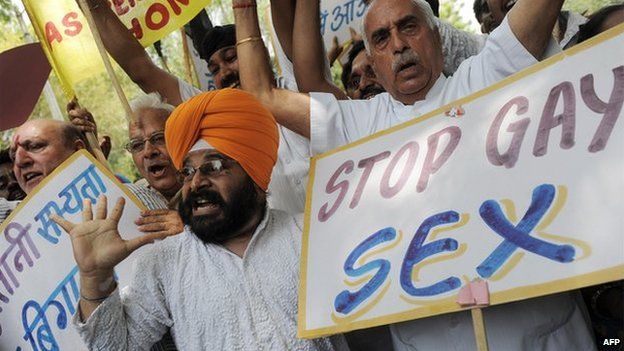
In India, homosexual acts are illegal under the penal code and life imprisonment can be given to those who are found to be participating in them. Same-sex couples many not marry or have a recognised civil partnership. In india, to openly display sexuality or gender identity without threats of violence and harassment is uncommon.
Despite these immense challenges, the first Indian pride parades have been held in recent years and the call for LGBT rights is gradually growing. India has a historical and cultural community of ‘Hijra’s’ who are legally recognised as a third gender. Transgender people are also legally allowed to adopt children, unlike same-sex couples. Because of this, transgender rights in India are not as harsh as in neighbouring countries, although they still require great lengths of reform.
Almost no rights are granted to LGBT people in the Indian legal system, all forms of expression are illegal and the conservative society makes daily life extremely difficult. Much like in Turkey, there are countless incidents of physical violence, rape and harassments of LGBT Indians, or those merely suspected to be LGBT. Decriminalisation has been challenged, lightly, in the courts but it is greatly uncertain if or when the current laws will be formally altered.
The quality of life for LGBT people in India is very poor, with those who choose to be open facing family/social rejection on a regular basis, and even expulsion from their homes and communities, but with growing pride marches and influence of western values, the struggle for LGBT acceptance and rights may soon take flight in the subcontinent.
9. Uganda
Uganda ranks as one of the worst places in the world for LGBT people, with nearly all pools showing above 90% of surveyed Ugandans hostile to homosexuality being accepted by society. All forms of homosexual behaviour in Uganda are criminalised, and punishable by life imprisonment and the death penalty.
Uganda has hosted a humanitarian crisis for its LGBT community, the laws in the country explicitly allow ‘vigilante executions’ of homosexuals, meaning people can be killed on mere suspicious with the authorities not willing and not able to act. In 2012 the speaker of the Ugandan parliament even called for harsher laws against homosexuals in the country, including more regular executions and longer sentences for ‘repeat offenders.’
Ugandans view homosexuality overwhelmingly negatively. In many surveys only a tiny fraction of the population support any form of societal acceptance and there is no mainstream political push for LGBT rights in the country. There are disturbing accounts of beatings and disownment from all over the very conservative african nation. Recently, bills have been put to the Ugandan parliament that would ban non-governmental organisations from ‘promoting homosexuality,’ further eroding the civil liberties and rights of Ugandan’s and endangering their lives furthermore.
Small showings of support for the LGBT community have been seen, in tiny demonstrations or acts of protest but with harsher and harsher laws, and more and more lives being taken by the state, resistance is avoided. The extremely suppressive Ugandan government shows no signs of changing its policy on homosexuality. Uganda is an example of a country with an almost medieval attitude to homosexuality. That said, transgender rights in Uganda are also non-existent and reports of violence also face their community as well.
10. Iran
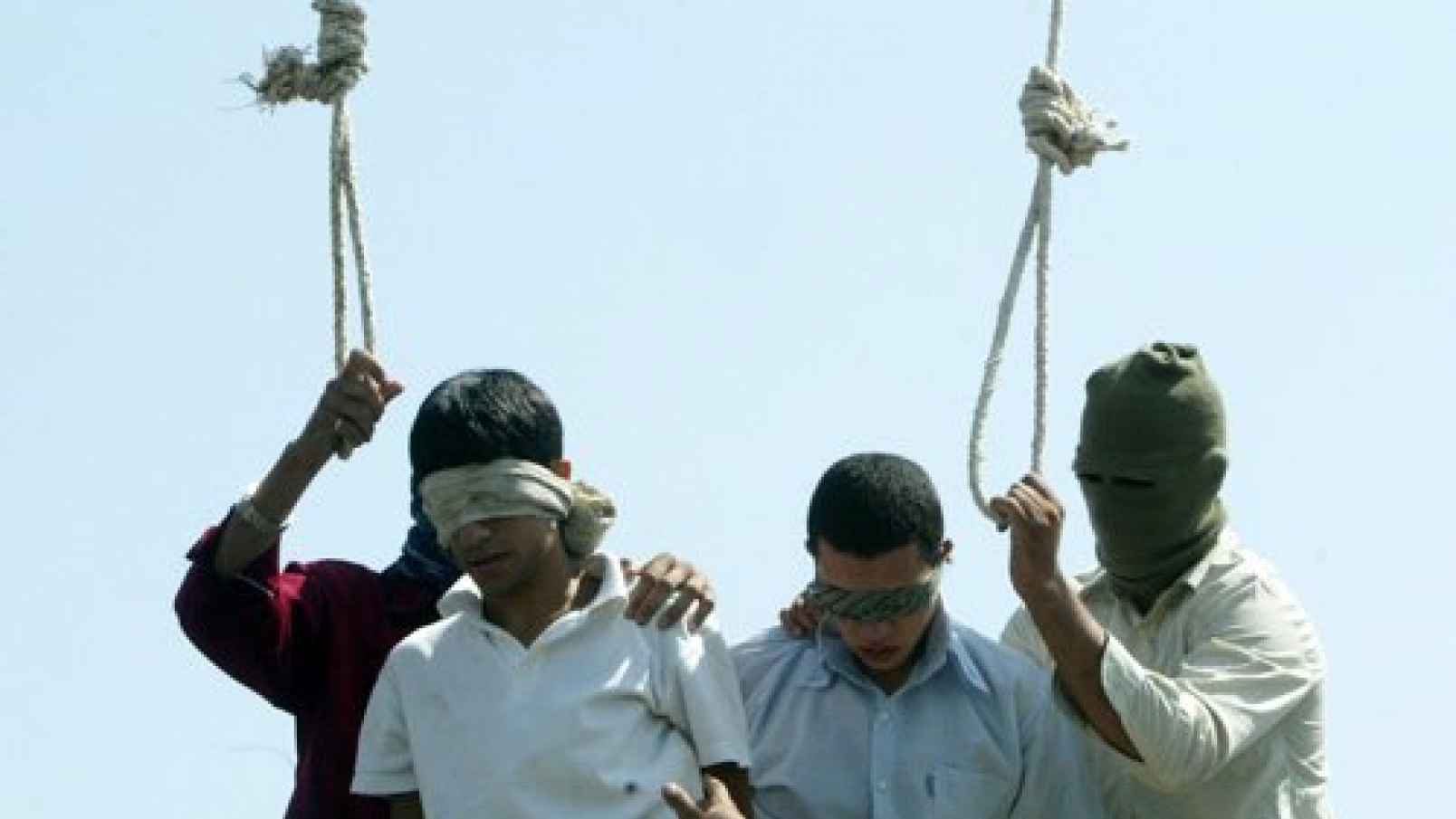
All homosexual acts are highly illegal in the Islamic Republic of Iran. In fact, any form of sexual activity outside of heterosexual marriage is forbidden in the Republic. LGBT rights in the country are nonexistent. Homosexual acts are punishable by life imprisonment, torture in the form of lashes and the death penalty. Iran is one of the only countries in which the death penalty is not only in place legally but regularly enforced. Since the 1979 revolution, some human right groups estimate between 4,000 and 6,000 people have been executed by the Iranian government for being allegedly involved in homosexual activities.
Transsexuality is treated slightly more humane, with gender reassignment recognised and partially paid for by the government, but transgender individuals are forced to keep a low profile or face acts of harassment and discrimination.
Despite the immense cruelties of the legal system, many state that the biggest threat to LGBT Iranians is their own family. Coming out is a very rare experience in the country, the ultra-conservative and highly religious culture makes open homosexuality a very dangerous act. It is widely believed that the Iranian intelligence service gathers information on those who are believed to be engaging in homosexual relations, but doesn’t prosecute them immediately, rather using the information to blackmail them into informing others or as further evidence if they were found to be involved in illicit political activities.
Many LGBT people have tried to escape Iran, but very few have been able to. Those who have made it have sought asylum all over the world, including Australia in some circumstances. The human rights abuses continuing to take place in Iran are regarded as the worst in the world, and many activists and experts believe that Iran’s treatment of homosexuals and transsexuals is a mass violation of individual human rights.
Australia has come very far in its struggle against homophobia and transphobia. Many battles have been won by the LGBT community and it is fair to say that Australian society has become much safer for those of diverse sexuality or gender. However, once in a position of security, it’s easy to forget about and become indifferent to the continuing battles that others fight to this day. The violations of human rights in Iran and Uganda aren’t as distant or foreign as we think. State acts of homophobia and state violence against homosexuals and transgender individuals continues, in many places.
Our situation is not perfect, we have an undoubtedly large array of problems facing the LGBT community not just locally but around the world. It is important to note that those struggling and those facing suppression and oppression are not too far removed from ourselves. We must remember, Turkey shares a border with Greece, Russia shares a border with Finland. Extremist state-sanctioned homophobia and transphobia isn’t as far away as we like to think. It can be just across the fence.
In saying this, the LGBT community doesn’t have a history of leaving it’s own behind and abandoning those who need help. The struggle for LGBT rights continues to push forwards, be it for marriage rights in Australia or the right to live in Iran. The movement continues to make advancements, and human rights are finally being granted to LGBT people in many places where they were not granted before. Upon researching the realities of places such as Iran, Uganda, Senegal, Saudi Arabia, Nigeria and Iraq it becomes clear that the struggle for protected LGBT lives is far from over, if anything, the shared ancestral struggle will continue onward for many decades to come.


